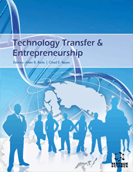Abstract
The flaws in the training of PhDs in life science disciplines are impacting the state of academic biomedical science in the United States (U.S.) as well as the fate of PhD students and postdoctoral fellows. In the absence of sweeping changes to the U.S. graduate training model, these circumstances will degrade the pipeline of highly educated scientific innovators and entrepreneurs. To counter this, a wide range of unique programs are emerging with the objective of providing opportunities for PhDs to more easily transition into the job market, where they will be able to sustain and build innovation within the marketplace.
In this article, we describe the current challenges faced by emerging PhDs in the life sciences, address the negative implications of the existing training paradigm, and introduce some of the unique programs that will help PhD trainees be better prepared for the non-academic career paths that they are likely to follow. PhDs from all disciplines are key contributors to the innovations that drive technology transfer and entrepreneurship. As such, graduate programs should serve as the common training grounds for these individuals to gain the subject matter expertise, research experience, and vision needed to develop scientific advancements for the benefit of society.
Keywords: Careers, entrepreneurship, Innovative training programs, Jobs, PhD training, Research funding, Science PhD, Skill development.
 98
98 5
5 1
1

